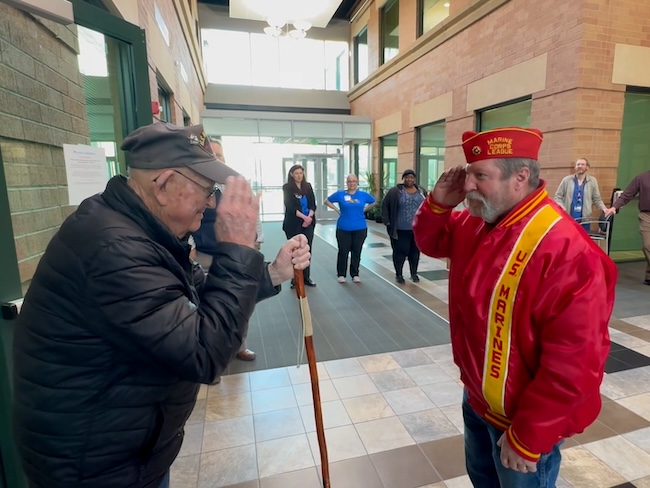Long-term study offers clues for healthy aging
Our researchers are learning about brain health and ways to reduce the risk of dementia and Alzheimer’s disease.
To protect your brain health as you age, it’s important to exercise regularly and manage your blood pressure and blood sugar levels. If you have cataracts, get them removed.
It’s said that with age comes wisdom. And that’s often true. But sometimes, aging brings memory problems.
To learn more about why some people develop memory problems and what we can do to help prevent it, our researchers in Washington state created the ACT study in 1994. ACT stands for Adult Changes in Thought.
The study has followed volunteers over many years to better understand what increases the risk of developing dementia. The goal is to find ways to prevent or delay dementia and Alzheimer’s disease. Alzheimer’s disease is the most common form of dementia.
Linda McEvoy, PhD, a neuroscientist who co-leads the study, talks about what the researchers have learned and the questions they still hope to answer.
What drew you to this work?
I’ve always been fascinated by the brain and how it works to allow us to think, create, interact with others, and appreciate our surroundings.
I want to learn everything I can about how to keep our brains healthy as we age so that we can keep enjoying the things we love to do — and so that fewer people have to suffer, or watch their loved ones suffer, from the devastating impacts of brain disorders such as Alzheimer’s disease.
I feel privileged to partner with our members in this study. They’re doing so much to advance the science on preventing dementia. Linda McEvoy, PhD
What role do Kaiser Permanente members have in the study?
Our volunteers are the most important part of the ACT study. We couldn’t do this work without them.
We invite older Kaiser Permanente members who have received care at one of our facilities in the greater Seattle area to be part of our study. We pick the people we invite at random, which means people can’t just volunteer without being selected.
People who agree to participate are seen by our study team every other year. They also allow us to use the information we collect as part of their routine care for use in our study. This data helps our research team learn how a person’s health history affects dementia risk.
What can people do to protect their brain health?
One of our study’s most important findings is that people can have changes in their brain that are known to contribute to Alzheimer’s disease and still never develop dementia in their lifetime. This is important because it suggests there are factors that can protect us from getting dementia, even if we experience some of these brain changes with age.
We know from our research that regular exercise can help prevent or delay dementia. Keeping your blood pressure and blood sugar levels under control also helps. We found that high blood sugar levels are linked to increased dementia risk, even in people without diabetes.
For people who have cataracts, getting them removed may lower their risk. A study of ACT participants found that cataract surgery reduced the risk of dementia by nearly 30%. This may be because people get better input to their brain when they can see more clearly.
The ACT study has also found that higher levels of air pollution are a risk factor for dementia. So, paying attention to air pollution levels and trying to stay inside on days with high pollution are good ideas.
What are some of the questions the ACT study is looking at next?
We’re looking at how our sleep habits and time spent sitting throughout the day relate to brain health.
We’re also working to understand whether common medications may be associated with increased or decreased dementia risk. And we’re looking at how different types of air pollution (for example, from traffic or wildfires) are related to dementia risk.
We’re learning so much because of the generosity and dedication of our participants. I feel privileged to partner with our members in this study. They’re doing so much to advance the science on preventing dementia.




